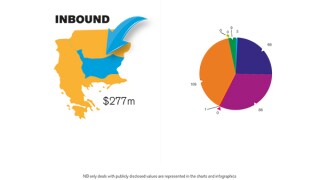Central and Eastern Europe (CEE)
IFLR’s accreditation title reveals that 240 practices moved up the tables and 128 firms appeared for the first time
New hires were made across the finance and corporate practices in Hong Kong, Melbourne and the Czech Republic
Warsaw office managing partner Agnieszka Janicka expects more deal activity as businesses scale and consolidate to mitigate geopolitical and regulatory uncertainties
The finalists for the 26th annual Europe awards are revealed - winners will be presented in London on April 3
Partners Nikos Papachristopoulos and Yannis Seiradakis reveal the firm’s approach to deliver on the largest energy transaction on the Athens Stock Exchange to date
New hires were made across the corporate, restructuring and finance practices in Copenhagen, Dubai, New York and Warsaw
The Athens-based corporate lawyer discusses why her three daughters are a constant source of inspiration and why she could see herself being a doctor if she weren't a lawyer
Managing partner Gabrielle Dannberg, an M&A specialist by trade, discusses how she has earned the trust of her colleagues to lead a firm that fosters a collaborative culture
Sponsored
Sponsored
-
Sponsored by Boyanov & CoMihail Vishanin and Yordan Naydenov, Boyanov & Co
-
Sponsored by Futej & PartnersAmended money-laundering legislation that came into force in the Slovak Republic on November 1 2018 requires companies to register their beneficial owners in the commercial register. Previously, only companies which conducted business with the state or received public funds were required to report their beneficial owners; those beneficial owners were registered in a public register of public sector partners, a register that is separate from the commercial register. The new legislation requires all companies in Slovakia, with the exception of publicly listed companies, to register their beneficial owners in the commercial register.
-
Sponsored by Sołtysiński Kawecki & SzlęzakMarcin Olechowski and Wojciech Iwański of Sołtysiński Kawecki & Szlęzak dive into the legal uncertainty surrounding the launch date for open banking in Poland




















